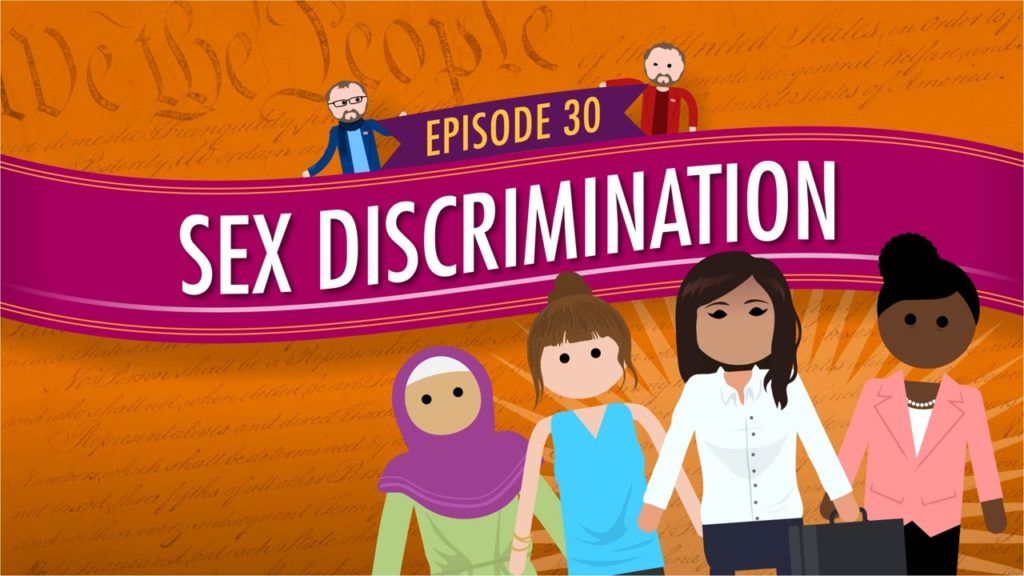These days, employers generally know that gender discrimination, i.e., singling out someone for negative treatment just because of their sex, is illegal. Employers may have a handbook saying all the right words to discourage gender discrimination. However, the existence of an employer’s written anti-discrimination policy does not mean that it is followed in practice.
Even today, the “glass ceiling” – that invisible barrier that prevents women from obtaining upper-level positions (and it is often women who are victims of gender discrimination) – remains intact. More disturbingly, these glass ceilings are harder to recognize and more difficult to combat, particularly where employers are savvier at making a great show of “equal” treatment. They may have hired or promoted some women to seem fair. On closer inspection, however, these women may not be paid as much as their male counterparts, or they may experience derogatory or hostile treatment from their male colleagues.
Consider the recently reported case of an accomplished female cancer doctor and research scientist:
Dr. Lauren Pinter-Brown worked for the University of California Medical Center for 25 years, and spent 10 years (2005 to 2015) as a director and researcher in the school’s lymphoma program. For much of her tenure in the department, Dr. Pinter-Brown was the only female there.
In 2011, Dr. Pinter-Brown reported to management and then to human resources an incident that occurred when another lymphoma specialist and male colleague continuously berated her and made her feel unsafe in the workplace. Instead of doing an investigation, the human resource officer accused Dr. Pinter-Brown of being a “diva” and an “angry woman.” He then hid her complaint in a drawer, stating “no one needs to know about this.”
After her complaint, Dr. Pinter-Brown began to experience harassment and retaliation. Her research privileges were revoked by a mostly male peer-review committee. She was subjected to audits of her work and told that “everyone hates you.” A supervisor threw a stack of paperwork in front of her, saying that “we don’t want someone like you directing the UCLA lymphoma program.” A male physician told her that “your job is not to boss the guys around.” Male colleagues were not treated in this manner.
The employer did not take any action to further investigate or correct the problem. The employer simply said that Dr. Pinter-Brown had “interpersonal’ issues” with her male colleagues. The work environment became intolerably hostile that Dr. Pinter-Brown was forced to resign, and essentially abandon the career she built for 25 years. She sued UCLA Medical for, among other things, gender discrimination.
California law prohibits discrimination on the basis of “sex,” defined to include a person’s “gender”; and “gender” includes a person’s “gender identity” and “gender expression.” It is also unlawful to engage in discrimination against any person because of sexual orientation, which means “heterosexuality, homosexuality and bisexuality.” When a worker is rejected for employment, fired, or otherwise harmed in employment because of her or his sex or gender, she or he may be a victim of sex discrimination.
Discrimination based on sex comes in many forms; failure/refusal to promote; unequal pay; disparate treatment in terms of socio-business relations (i.e., golf, power lunches, etc.); and using “lay-offs” to get rid of female employees who get pregnant. Victims of sex discrimination can recover remedies such as back pay, reinstatement, front pay, compensatory damages including emotional pain and suffering, and punitive damages. Discriminated workers may also be entitled to recover attorneys’ fees and litigation costs.
After trial, the jury found in favor of Dr. Pinter-Brown and awarded her $13,011,671, which included $635,612 in lost wages, $2,376,059 in future economic damages, $7 million in past non-economic damages, and $3 million in future non-economic damages.
The Law Offices of C. Joe Sayas, Jr. welcomes inquiries about this topic. All inquiries are confidential and at no-cost. You can contact the office at (818) 291-0088 or visit www.joesayaslaw.comor our Facebook page Joe Sayas Law. [C. Joe Sayas, Jr., Esq. is an experienced trial attorney who has successfully recovered wages and other monetary damages for thousands of employees and consumers. He was named Top Labor & Employment Attorney in California by the Daily Journal, consistently selected as Super Lawyer by the Los Angeles Magazine, and is the recipient of PABA’s Community Champion Award for 2016.]


